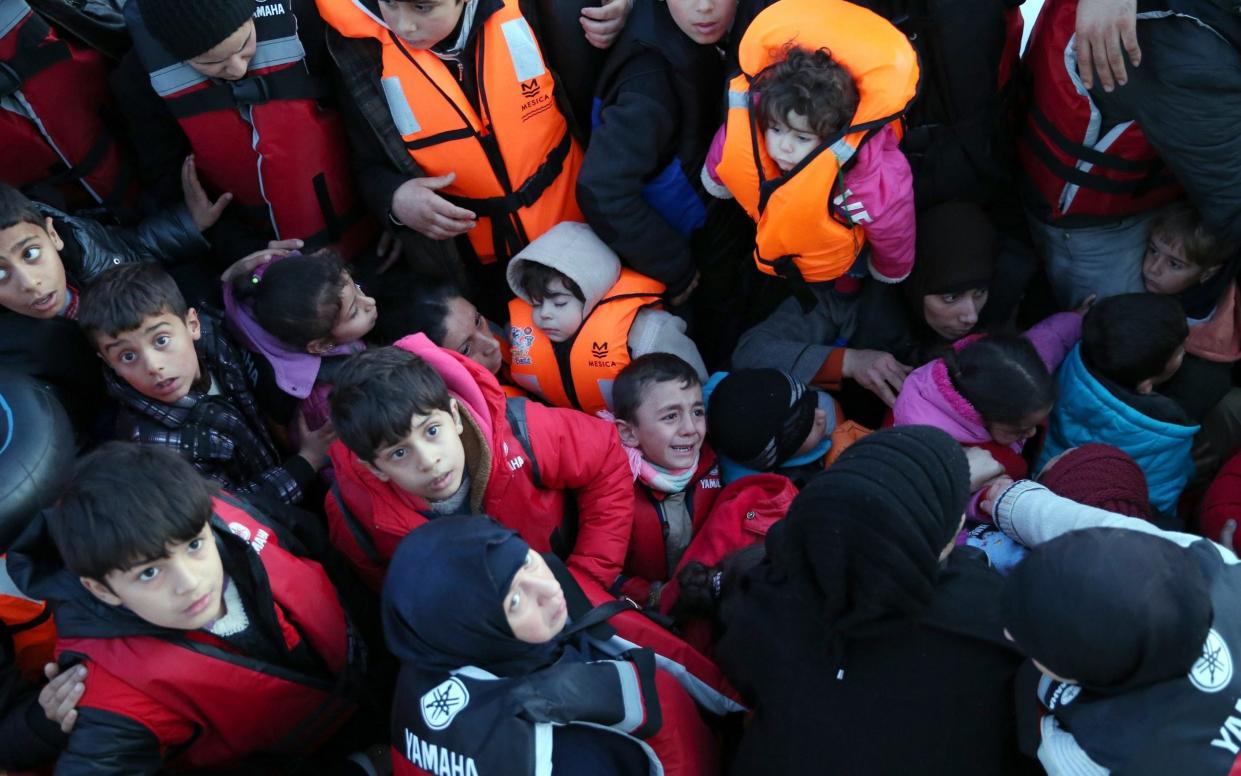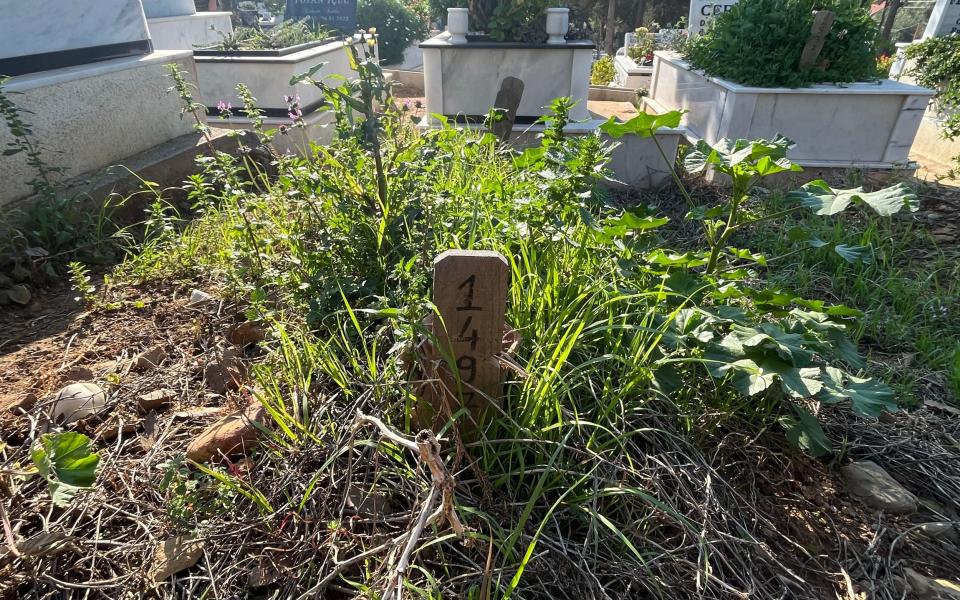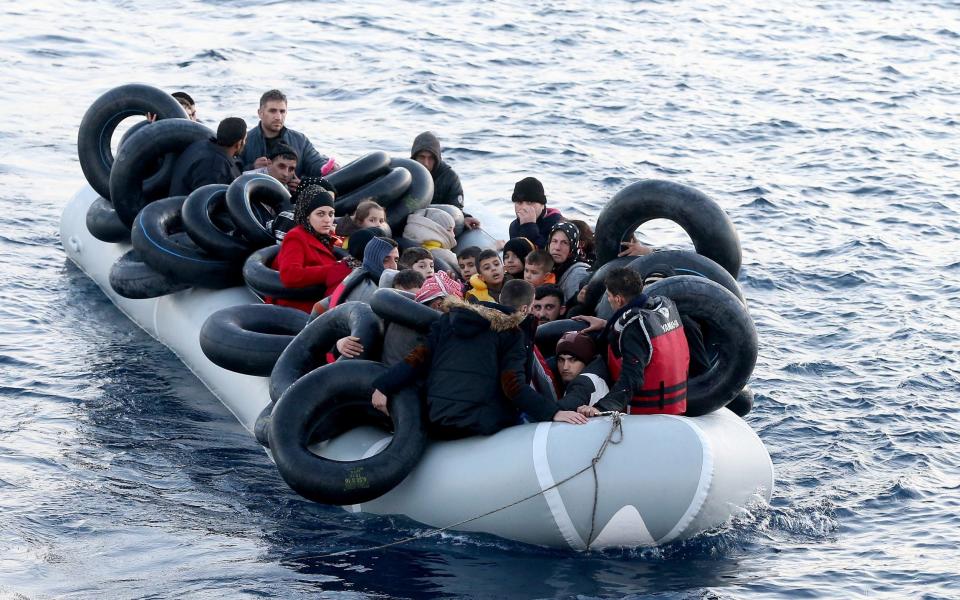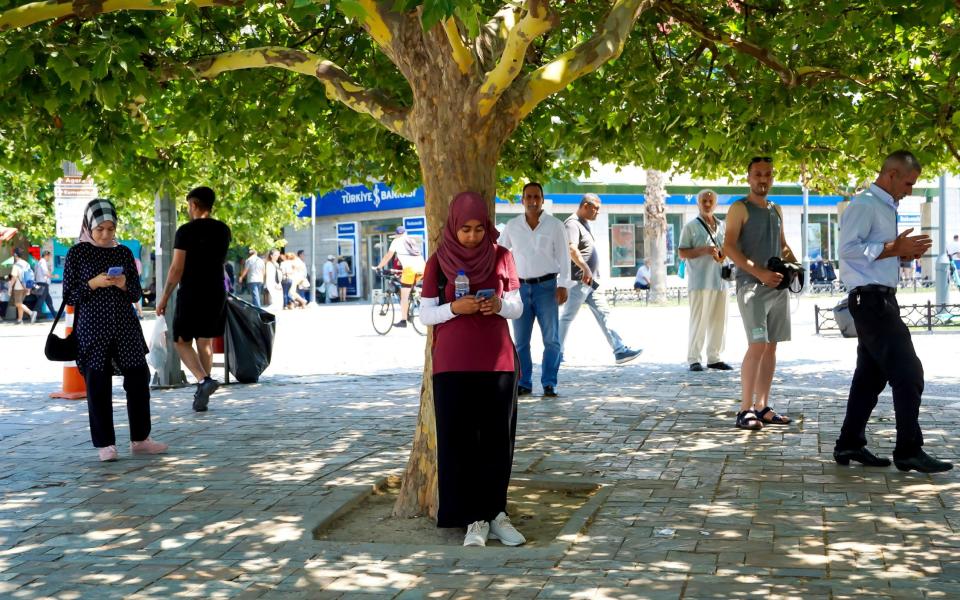How the murder of three Syrians burnt alive in Turkey is pushing a new wave of migrants into Europe

At a brief glance, you could easily miss the two small wooden stakes labelled 1497 and 1498.
Surrounded by gleaming marble tombstones engraved with “ruhuna fatiha” – rest in peace – and covered with flowers, the hastily dug graves in a cemetery in the Turkish coastal city of Izmir are almost invisible.
Cemetery caretaker Giyasettin Uçar, 48, doesn’t know who is buried there, but he still cuts the weeds once a month.
“I know nobody ever visits to tend to these graves,” he explains.
This is where the charred remains of Ahmed al-Ali, 21, and Muhammed al-Bish, 17, have been interred.

Both were Syrian migrants murdered by a Turkish man in 2021, along with Mamoun al-Nabhan, 23, after being doused in gasoline and set on fire.
But the graves remained unmarked – as illegal migrants in Turkey, they had no relatives to identify and claim their bodies.
More than three million Syrians live precariously in Turkey, having streamed into the neighbouring country in 2011, given the devastating strife of civil war. The real figure, though, is possibly double that, as many arrive illegally and remain unregistered.
As such, they increasingly fear being deported to their war-torn nation, particularly as the political and public discourse in Turkey has largely turned against migrants.
Such precarious status has led to more waves of Syrians desperately trying to flee Turkey for European shores. Many depart from Izmir, just a few dozen miles across the sparkling Aegean Sea to Greece, paying anywhere from $5,000 to $15,000 a head.

In the Basmane neighbourhood of Izmir, where many Syrian migrants reside, flimsy plastic rafts and life jackets are a common sight – supplies for an eventual death-defying journey.
Because Izmir has long been a departure point for refugees seeking to get to Europe, the demographic makeup of the mostly secular, cosmopolitan city, too, has begun to change.
Even in death, advocates say these three Syrian men murdered in 2021 were discriminated against, criticising Turkish authorities for at first failing to appropriately investigate the cause of death.
The issue of Syrians in Turkey has become caught in the perfect storm, coming in the crosshairs of political parties campaigning for votes by stirring xenophobic sentiments and blaming migrants for taking jobs away from locals as a massive economic crisis brews.
Candidates on the campaign trail “talk about sending Syrians back to Syria,” said Yildiz Önen, a spokesperson for the Asylum Seekers Platform, an Istanbul-based advocacy group.
‘We are going to “clean” the Syrians out of Turkey’
“Even in the [upcoming] local elections… every party has at least one or two candidates that have this propaganda: That we are going to ‘clean’ the Syrians out of Turkey.’”
Such language, she argues, allows for discrimination to proliferate, leading to violence.
“For a long time, there wasn’t great hostility toward Syrians,” said Ms Sinclair-Webb.
As the influx of Syrians came under the leadership of Turkish president Recip Tayyip Erdogan, it became a political issue “whipped up by the opposition [party]; it’s a way of being anti-Erdogan” she said. Over time, “it’s taken on a momentum of its own”.
Turkey “did the right thing – people came here to escape a war, and this was exactly the humanitarian approach,” said Emma Sinclair-Webb, Turkey director for Human Rights Watch, an advocacy group.
But there was no way for Turkey – and other countries including the UK dealing with an influx of Syrian asylum seekers – to know that the conflict would rage on for as long as it has, and lead to a near-permanent displacement of millions of people.
Refugee advocacy groups say that more needs to be done to integrate migrants. A lack of proper refugee status – and without an official work permit in hand – has made this group especially vulnerable to exploitation, particularly on wages. At best, Syrian migrants have “temporary protection” status by Ankara.

Syrian migrants earn as little as 3,000 Turkish lira a month, or about £70 – far less than the 17,200 Turkish lira mandatory minimum wage.
The three Syrian men killed, for instance, barely made ends meet working shifts on various construction sites in Guzelbahce, or “beautiful garden,” an upscale district in Izmir, a breezy, balmy holiday destination popular with Turks and foreigners alike.
The murder investigation and ensuing court case, much like the graves, has largely been forgotten in Turkey – save for a staunch handful of human rights lawyers and refugee advocates.
For the last few years, they’ve been tirelessly pushing for a final court decision that would specifically identify hate and discrimination as a motive behind the murders – in essence, to classify the heinous homicides as a hate crime, thereby setting a new legal precedent in Turkey.
Such an outcome – designating this as a hate crime – would represent a landmark decision for Turkey. Until now, no court in the country has ruled in this manner.
There was strong impetus to do so, as the defendant, Kemal Korukmaz, had earlier confessed. Evidence and testimony presented in court also indicated that he had spoken of “cleaning” Turkey of Syrians, including specifically that he wanted to kill them, in the weeks prior to the crime.
“Your views on hate motives will set a precedent for future laws,” Zafer Incin, one of five lawyers representing the victims’ families, said to the judges in the final hearing on Wednesday. “We think emphasising the hate motive in this decision will pave the way for legal developments in Parliament.”
But on Wednesday, a court in Izmir convicted Korukmaz to life in prison, as expected, though failed to issue a final judgement with any mention of hate as a motive, to the disappointment of the victims’ families and lawyers.
Activists have criticised Turkish courts for shying away from doing so, as it would open up a can of worms and lead to a deluge of requests for cases to be re-examined.
“If that decision were taken, then hundreds of cases could be opened – and not only regarding Syrian refugees,” said Taha el-Gazi, a Syrian human rights activist in Turkey. “A lot of cases would have to be reopened.”
The presence of more than a dozen armed riot police, including some in plainclothes, in the courtroom for the final hearing underscored the sensitive political nature of the case.
Even the defendant’s lawyer declined to speak to The Telegraph on the record, saying he was concerned of public reprisals for representing Mr Korukmaz – another example demonstrating the fraught circumstances of the case.
‘There is no access to justice’
Activists say hundreds of violent incidents against Syrians have occurred across Turkey, though few ever make it to a day in court. About a dozen such cases are pending now in various courts throughout the country, said Ms Önen, who tracks and attends the legal proceedings.
“These attacks have a really chilling effect on the whole community,” said Ms Sinclair-Webb.
“People are very scared to complain; they find it difficult to complain to the police if they are victims of crime itself, because it can bring them trouble, rather than provoke an investigation into the real perpetrator,” she said. “There is a real sense that there is no access to justice.”
“I miss everything about Mamoun,” said Ahmed al-Nabhan, 33, of his late brother, who he cradled in his arms as a newborn. “Our mother was devastated; she’s been mourning ever since she learned of Mamoun’s death.”

